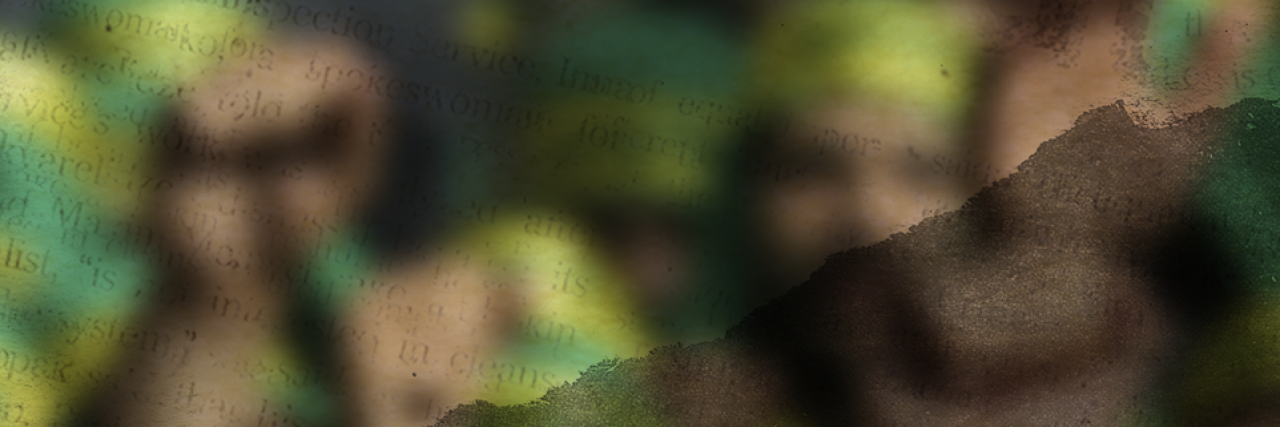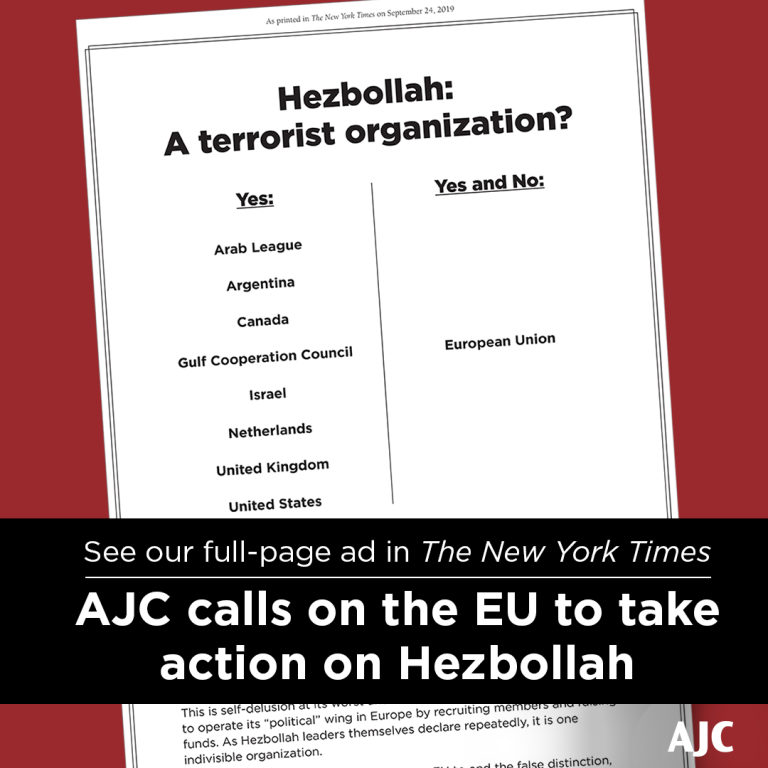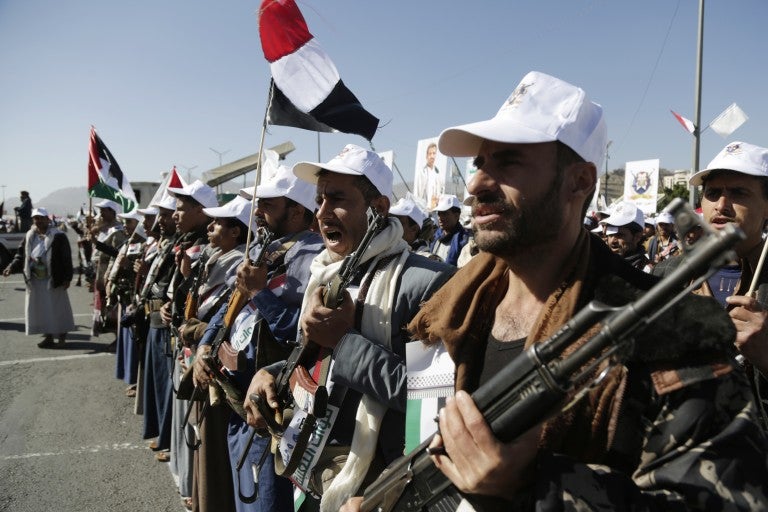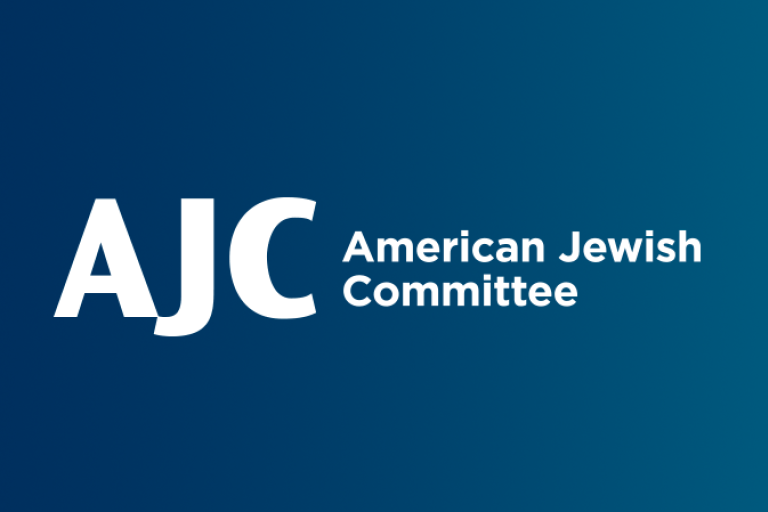AJC Call to Action
AJC urges the European Union, and other responsible state and non-State actors, to designate the Iranian-sponsored terrorist group Hezbollah, in its entirety, as a terrorist entity. The United States, Canada, Israel, the Netherlands, the United Kingdom, the Arab League and the Gulf Cooperation Council (GCC) have all designated Hezbollah in its entirety as a terror organization. Recently, Argentina made the full designation as well. We call on all parties in the international community to do the same. In 2013, the European Union designated Hezbollah’s so-called “military wing” as a terrorist entity. We urge the EU to erase the false distinction between the terrorist group’s “military” and other wings, and designate Hezbollah in its entirety a terrorist organization.
False Dichotomy
The premise that Hezbollah has distinct military/terrorist and political wings is a distinction of convenience that Hezbollah’s own leaders reject. Experts agree that it does not reflect the reality of the group’s leadership structure, which is controlled by a single coordinating council. To this day, the organization continues to pursue its ultimate goal: the establishment of an Islamist dictatorship similar to that of Iran in Lebanon and beyond. Only its strategy for achieving this goal has morphed to include politics as well as force and violence.
Political Instability
AJC urges the EU to review the success of its current policy and come to the realization that banning only part of Hezbollah has failed in discouraging violence and promoting stability in Lebanon. As of today, Hezbollah has continued engaging in terrorist and criminal activities notwithstanding the ban on parts of the group. It was implicated in the 2005 assassination of Lebanese Prime Minister Rafik Hariri, leading the UN tribunal investigating the case to issue arrest warrants for four Hezbollah members. Three years later, in 2008, Hezbollah seized control of western Beirut in a bloody coup that took more than 100 lives. In blatant violation of Security Council Resolutions 1559 and 1701, which called for disbanding all militias in Lebanon, Hezbollah has maintained and expanded its military capability, undermining the authority of the civilian government. Finally, Hezbollah has supported the Assad regime’s murderous campaign against the Syrian people and has exacerbated sectarian and ethnic tensions in Lebanon. The devastation caused by this conflict fueled Europe’s unprecedented refugee crisis of 2015 and 2016.
Furthermore, Europe’s concern that identifying Hezbollah in its entirety as a terrorist organization would preclude contact with the Lebanese government, of which Hezbollah is a member, falls short when considering that the U.S. has been able to communicate its interests to that government, despite designating all of Hezbollah as a terrorist group.
Fundraising
By limiting the designation to Hezbollah’s military wing, the EU is effectively undermining its ability to seize questionable funds. Hezbollah accounts in Europe are not likely to list its military wing as a holder. Legally, any funds tied to Hezbollah, but not to its military wing, remain untouchable in Europe, making it possible for the terrorist organization to continue soliciting funds in Europe under the rubric of political and social activities and re-directing money afterwards to less altruistic recipients.
Terrorist Threat
While terror attacks such as the bombing in the Bulgarian town of Burgas in 2012 drew headlines and an initial response from the EU to identify Hezbollah’s military wing, Europeans continue to be largely unaware of the organization’s criminal dealings. As stated by U.S. State Department senior officials, Hezbollah’s ambitions and global reach rival those of al-Qaeda and ISIS. In recent years, its operatives have been caught preparing attacks as far afield as Azerbaijan, Bolivia, Cyprus, Egypt, Peru and Thailand.
Hezbollah is a quintessential terrorist organization. It perpetrated the 1983 bombing of the U.S. embassy in Beirut, which killed 63 people and, also in 1983, the gruesome bombing of the U.S. and French barracks of the Multinational Force in Lebanon, killing 241 American servicemen and 58 French soldiers. Hezbollah was responsible for the bombing of both the Israeli Embassy in Buenos Aires in 1992 and the AMIA building in 1994, which together killed 114 civilians and injured scores more. In July 2012, Hezbollah operatives perpetrated the aforementioned terror attack in Burgas, Bulgaria, in which six civilians – five Israeli tourists and a Bulgarian driver – died and scores were injured.
Iranian Connection
According to Forbes Magazine (April 2018) Hezbollah ranks first among the ten richest terrorist organizations with an estimated annual income of $1.1 billion, of which approximately $700 million a year is transferred from the Iranian authorities, and the rest is raised through an international network of drugs and crime. As the Iranian regime prioritizes its proxies abroad over the country’s increasing social and economic distress, there are terrorist cells that can easily be activated and strike targets in Europe and around the world with little to no warning.
Syria and Iran
Hezbollah’s role in the Syrian Civil War has further evidenced its connection as an extended arm of the Iranian regime. Since the summer of 2012, the organization has offered crucial assistance to the forces of Bashar Al-Assad, Iran’s most important Arab ally, and since 2013 it has openly taken part in large military operations inside Syria, the result of which has led to over 5.6 million Syrian refugees – many of whom sought shelter in Turkey, Jordan, Lebanon, and the EU.
The Lebanese Government's Responsibility
Hezbollah exercises effective control over southern Lebanon, and other parts of the country, and uses these areas as a springboard for belligerent activities against neighboring states with the acquiescence of the Lebanese government, of which it is part. This is a clear violation of the Lebanese government’s obligations under the UN Charter and various UN resolutions. In its landmark resolution 1373, adopted after the 9/11 terror attacks, the UN Security Council clearly states that all countries shall refrain from providing any form of support – active or passive – to entities or individuals involved in terrorist acts, deterring the recruitment of new members and helping eliminate the supply of weapons.
Illicit Dealings
While trying to distance the organization from accusations of corruption and drug trafficking, portraying itself as the “Party of God,” there is ample evidence in Europe and elsewhere that Hezbollah greatly benefits from illegal sources of fundraising. In Argentina, the Financial Information Unit apprehended Assad Ahmad Barakat and froze the assets of the Barakat clan for its involvement in crimes of smuggling, counterfeiting and falsification of documents, extortion, drug trafficking, arms trafficking, money laundering and terrorist financing. In France, 15 Hezbollah members were referred to criminal court in January 2018 on drug dealing and money laundering charges.
Threat to International Peace and Security
In December 2018, Israel launched an operation to expose and neutralize tunnels penetrating Israeli territory from Lebanon. Dug by Hezbollah, these tunnels were expressly meant to spread terror in a flagrant violation of Israel’s sovereignty as well as several UN Security Council resolutions, especially resolution 1701, adopted in 2006 to cease the Hezbollah-instigated hostilities on the Israeli-Lebanon border. If the tensions between Israel and Hezbollah escalate into full-fledged military confrontation, it could become a broader regional conflict that would threaten international peace and security. Considering European interests in the region, and the presence of European troops in UNIFIL, Europe would be inevitably involved. Such an escalation could also cause a new wave of refugees, deepening the already dire refugee crisis in the region.





